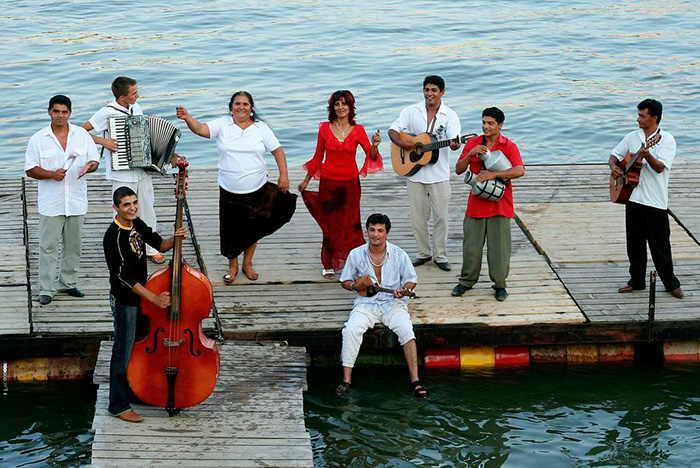Parno Graszt: The Musical Soul of the Roma Tradition

József Oláh, member of the Roma music ensemble Parno Graszt, laughed heartily when I asked him the meaning of the group’s name. “It means ‘white horse,’” he said via translator. “Why ‘white horse’?” I wanted to know. Oláh said, “Once, outside a tavern, we saw a scrawny white horse standing alone off to the side. Jokingly, one of us said aloud, ‘If that skinny white horse can make it, why can’t we?’ The name stuck.”
Oláh explained that Parno Graszt is made up of family. “We are uncles, brothers, sons,” he said. They have been making music together for years; Oláh held his hand a couple of feet off the ground to show how young he was when he learned to play. The group achieved international acclaim in 2002 with their album Hit the Piano. When I asked him how that felt, he said, “It was sort of funny actually. We were known in the world before we were really known in Hungary.”
The sounds of Parno Graszt pull from the group members’ Roma heritage and tradition. They play acoustic guitars, double bass, tambura, accordion, spoons, milk jugs, and use vocal percussion, a continuous vocal improvisation similar to beatboxing, to create their rich, lively sound. I took a break from working the Festival last week to watch the group perform on the Danubia Stage.
The afternoon sky was darkening with storm clouds, but the crowd was thick under the huge tent. From the beginning of the band’s performance, the audience was charged with their incredible energy; people were clapping, and no one could sit still. The music of Parno Graszt summons up visions of smoky fires, traveling caravans, and wide open spaces.
Later, after the performance was over, I joined József Oláh on a quiet bench under a tree in the corner of the Hungarian Heritage area. Fat raindrops spattered my notepad, but Oláh seemed eager to speak to me and his eyes crinkled with a genuine smile. I asked him how it felt to perform on the National Mall. He said that, because the Danubia Stage was so open and airy, performing there felt different from the more intimate stages and taverns they often play. But his grin widened when he told me it felt good to see so many people in the audience joining the band, dancing and even singing to the music that, he said, feels like part of his soul.
“It’s like the white horse,” he said. “The name Parno Graszt comes from something deeper than a funny encounter outside a tavern. The Roma people have always been nomadic, and have always been linked with horses. We live where they live, die where they die.” This connection is evident in the name lóvari, derived from the Hungarian word for horse, ló. The word lóvari is used to describe the Roma people in Hungary and is part of the cultural tradition behind Parno Graszt.
I walked away from my conversation with Oláh under the tree and understood the beauty in this group of lóvari musicians sharing the soul of their nomadic tradition on stages across the world.
Hannah Crepps is a Web Production and Social Media intern with the Smithsonian Center for Folklife and Cultural Heritage. She graduated in May from St. John’s College in Santa Fe, N.M. and hopes to pursue her interests in cultural heritage policy and international diplomacy.

